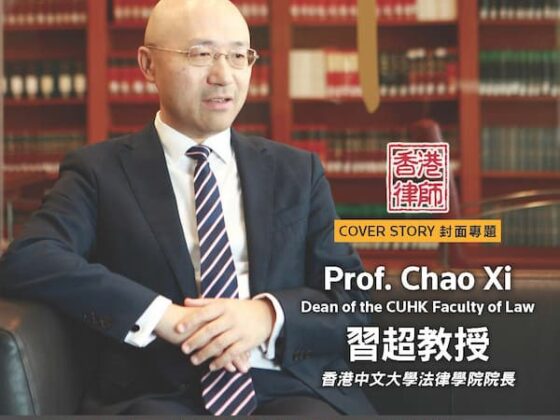Unfortunately, disputes often arise upon the death of a family member, it is an emotional time that can be exacerbated when beneficiaries believe that unauthorised or unfair transfers were made during the life of the deceased. Aside from the emotional despair, such unauthorised or unfair transfers impact beneficiaries, as their inheritance from the Estate is reduced.
The solution is usually forensic exercises to work out which transfers were authorised or lawful; transfers which were unauthorised or unlawful will be “clawed back” into the Estate. However, forensic investigations may be time consuming and costly, as it usually results in litigation. According to Hong Kong’s Social Welfare Department, between January to March 2020, at least 15 cases of elder financial abuse were recorded.
Examples of unauthorised or unfair transfers
There are many ways which unauthorised or unfair transfers may occur during the life of a testator (a person who has made a Will or given a legacy), particularly in their later years. Very often, mental incapacity of the testator contributes to such unauthorised or unfair transfers, as he/she becomes more vulnerable. Here are a few examples:
- using the testator’s bank account or credit card without their consent;
- falsifying records or forging signatures for the testator’s Will or cheques;
- investments made without knowledge or consent – these often include high fees or trading activity that may generate commissions for financial advisors;
- inappropriate sales/purchase of insurance policies; and
- coercion into changing their Will, for example to gift certain assets such as property title(s).
Ways to prevent unauthorised or unfair transfers for mentally incapacitated testators
Definition of Mentally Incapacitated Persons
The Mental Health Ordinance (Cap. 136) (“MHO”), defines a Mentally Incapacitated Person (“MIP”) as “a person who is incapable, by reason of mental incapacity, of managing and administering his property and affairs” or persons suffering from mental illness or psychopathic disorders or having significant impaired intelligence.
There are two main ways of preventing unauthorised or unfair transfers for mentally incapacitated testators:
1: Enduring Power of Attorney
While the individual is still of sound mind, he/she can appoint another person(s) that he/she trusts, such as their son/daughter, an enduring power of attorney (“EPA”). The Enduring Powers of Attorney Ordinance (Cap. 501) (“EPAO”) is the legislation governing EPAs.
Under the EPAO, an EPA is a legal instrument allowing the donor (i.e. the person who wishes to give his/her power of attorney to another), while he/she is still mentally capable, to appoint attorney(s) to care for and arrange the donor’s financial matters in the event that the donor subsequently becomes mentally incapacitated (section 4 of the EPAO). An enduring power of attorney differs from a general power of attorney because a general power of attorney ceases in effect if the donor becomes mentally incapacitated. We have discussed EPAs in further detail in our previous article “Enduring Power of Attorney: Sound Advice for the Unsound Mind!“.
2: Committee of Estate of a Mentally Incapacitated Person
Powers of a Committee
Section 11 of the MHO grants power to the Court to appoint a Committee of the Estate for a MIP for the primary purpose of “managing and administering … [the] property and affairs” of a MIP. A Committee is under the supervision of the Court, and has multiple duties in addition to managing the properties of the MIP, including but not limited to:
- opening up a Committee bank account;
- claiming all social security benefits due to the MIP;
- preparing accounts when requested by the Court (typically annually);
- ensuring that the MIP’s tax matters are dealt with;
- informing the Court should there be changes in the MIP’s financial situation (e.g. further assets discovered or inheritance);
- informing the Court if preparation of a statutory Will is being considered;
- informing the Court about any changes to the MIP’s recovery or death.
The major difference between a Guardianship and a Committee is that Guardianship concerns mainly the welfare of the MIP, whereas a Committee is more concerned with the property and financial aspects of a MIP. Additionally, a Guardian is limited to hold, receive or pay a specified sum up to a maximum of HK$12,000 per month, whereas a Committee has a wider power of control of the MIP’s property, including sales or transfer of properties or drawing funds from the Estate to maintain the MIP or his/her dependants’ lifestyles, as ordered by the Court.
Who can be a Committee?
While MHO does not specify who can be members of a Committee, relatives are typically appointed by the Court. As the Committee may be a group of persons, professionals may be included; accountants are a good example of professional inclusion in a Committee, particularly where large Estates are concerned.
It is also possible for the Court to only appoint independent professionals to be the Committee and reject an application from family members dependent on the circumstances.
Such was the case in Re A [2009] 2 HKLRD 159, where the testator was deemed a MIP. The two beneficiaries were the MIP’s children and it was clear that there was tension between the two siblings. The Court did not appoint a child to the Committee as they felt it would “inevitably compromise the independent judgement of the Committee” and ultimately appointed an accountant as the Committee of the testator.
There are three situations in which the powers of a Committee come to an end:
- the Court is satisfied that the MIP recovered; or
- the MIP dies; or
- another Committee has been appointed to replace the current Committee.
Can you successfully be appointed Committee if there is an existing EPA?
In short, the answer is yes, though it is dependent on the circumstances of each case. The law on the matter follows the EPAO which grants the Court jurisdiction to revoke or vary an EPA, meaning a Committee can be appointed to co-exist with an EPA.
Generally speaking, a Committee has wider powers than those conferred by an EPA, as an EPA is limited to financial and property matters specified by the donor. However, in C v B (Re Mrs A) [2018] HKCFI 467, a case where the question of a Committee being appointed alongside two EPA’s was raised, the two EPAs executed covered nearly all of the mentally incapacitated testator’s assets. In this instance the Courts turned to the “best interests or the requirements” of the testator and gave “due and proper weight to the wishes of the MIP before she became mentally incapacitated and as expressed in her [EPAs]”. This led to the application for a Committee being appointed, alongside the EPA’s, being dismissed.
Ways to prevent unauthorised or unfair transfers for mentally sound testators
While there are legal safeguards that can be taken to protect mentally incapacitated testators, the same legal protection may not be available to mentally sound testators who are vulnerable by reason of being bedbound, extremely ill, or having limited mobility, etc. In these situations, the testator is equally susceptible to having unfair or unauthorised transfers made out of their assets. A person could take a hold of a testator’s bank card to an ATM and withdraw a large sum of money; or if the ATM card was taken per the instructions of the testator for purposes such as paying medical bills, a person could withdraw more than instructed. Alternatively, forgery of the testator’s signature is still a common occurrence to transfer the testator’s assets, particularly those which are intangible.
As mentioned above, this often only comes to light when the testator has passed away and assets are discovered to be missing, resulting in lengthy forensic exercises to figure out which transfers were authorised or lawful in an attempt to “claw back” the unauthorised or unlawful transfers. However, such forensic exercises often run into the practical difficulty of obtaining documentary evidence to show that the transaction could not have happened without the presence of the deceased. Even if a forensic exercise has been launched, a wrongdoer often uses the defence of claiming that the testator “asked them to” do so.
In such a situation, the best method to mitigate the chance of unauthorised or unfair transfers would be to increase vigilance in monitoring the testator and his/her belongings. A testator’s concerns regarding bill paying may be remedied by auto-payment of bills.
Conclusion
Growing old and vulnerable is inevitable, it is important that people protect themselves and loved ones from exploitation. While one way of protecting a testator’s assets is to have a Will drafted professionally, there are still steps that can be taken to avoid unauthorised or unfair transfers during their lifetime. For mentally incapacitated testators, that may be granting an enduring power of attorney to a trusted individual (often done simultaneously with drafting and signing a Will), and applying for Committee of the testator’s Estate once they have been declared a mentally incapacitated person. On the other hand, in our experience, protecting an elderly person’s assets when they are of sound of mind but incapacitated physically in some way is more difficult, as the most effective method is plainly to keep an eye on your elderly family member. Regardless, taking steps to protect vulnerable family members can save heartache for the testator, your family, and also save time in the future.
Our team of solicitors has extensive experience in dealing with contentious and non-contentious Estate issues – so kindly get in touch with us to find out how we can help.
This article is for information purposes only. Its contents do not constitute legal advice and readers should not regard this article as a substitute for detailed advice in individual instances.




